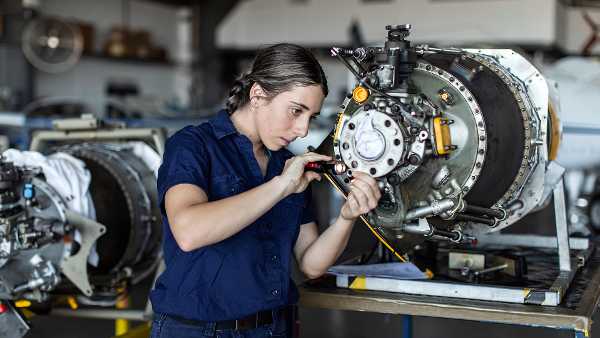Prinsjesdag 2025 announcements: More expensive transport, money for innovation, and more
- Background
- 18 September 2025
- 3 min
- Rules and laws
During Prinsjesdag 2025, the Dutch government announced plans that will affect your business. For example, taxes will go up for heavy trucks in 2026. Money will also be freed up for innovation. Zero-hours contracts will no longer be allowed from 2027.
What does Prinsjesdag mean for you?
During Prinsjesdag 2025, the Dutch government presented its plans for 2026. Visit Business.gov.nl to see the complete overview of government that will affect businesses.
Zero hours contracts disappear in 2027
Hiring employees with a zero-hours will no longer be allowed from 2027. You must agree with each employee how many hours they will work for your business.
With a zero-hours contract or on-call contract, someone works for a business without the number of hours being fixed in advance. The employer calls the employee when there is work. When the work is complete, the colleague stops working again and does not get paid.
With an on-call contract, the employer only pays wages for actual hours worked. However, it is agreed that the employee must be paid for at least 3 hours, even if they do not work. Does the employee stay on for more than 6 months? Then the employer must usually continue paying wages even if the work is finished.
More financial security for employees
Abolishing the zero-hours contract gives workers more certainty about their income and working hours. For example, temporary workers will get the same rights as employees on permanent contracts. For entrepreneurs, it means that you must make clear agreements with the employee about the number of hours they will work.
Investing in extra innovation
The government wants to invest in extra (in Dutch) in various ways. The existing WBSO R&D tax credit for innovation and development will get more funding: €1.8 billion in 2026. The WBSO (Wet Bevordering Speur- en Ontwikkelingswerk) is a tax measure to encourage businesses to invest in research and development.
The government also proposes to give an extra €430 million in subsidies to innovative semiconductor projects (the microchip industry). And to promising startups that want to grow further into scale-ups.
VAT on overnight stays up
The VAT rate for overnight stays is going up from 9% to 21%. This applies to:
- Hotels
- Holiday homes
- Bed and breakfasts (B&Bs)
- Guesthouses
- Hostels
- Accommodation rented through platforms
- Furnished mobile homes
The change is expected to take effect on 1 January . The new rate will apply even if someone books this year for an overnight stay in 2026. Even if they pay for it in 2025. Please note: the VAT rate for overnight stays in campsites will remain at 9%.
More tax for air travel
Anyone travelling from the Netherlands by plane in 2026 will have to pay extra tax. This flight (in Dutch) will have 3 rates, with the longest journeys being the most expensive.
Short, medium, and long are the 3 types of air travel in the plan. For short trips (fewer than 2,000 kilometres), you pay €29.40 in extra tax. For medium trips (between 2,000 kilometres and 5,500 kilometres), that amount is €47.24 . The longest trips (from 5,500 kilometres) will cost you €70.86 in flight tax.
With this higher tax, the government wants to make air travel less attractive to protect the environment. In 2024 and 2025, the flight tax was €29.05 euros per person per flight.
Charge for heavy goods vehicles
There will be a heavy goods vehicle for domestic and foreign trucks over 3,500 kilograms (3.5 tonnes). For electric trucks, the toll will apply over 4,250 kg.
Owners of these trucks will have to pay an amount per kilometre driven on most highways and some other main roads. This new levy is scheduled for July 2026.
When this heavy goods vehicle charge takes effect, the Eurovignette will end in the Netherlands and motor vehicle taxes will go down. Many other European countries already have a truck toll in place, such as Germany and Belgium.
No more trip registration for SMEs
Many entrepreneurs complain about the regulatory burden. So the government wants to remove, change, or clarify rules. One example is the decision to stop trip registration for all small and medium-sized (SMEs).
Since 1 July 2024, businesses with at least 100 employees must set out how their employees come to work and make business trips. For example, whether they do so by car, train, or bicycle. Currently, businesses must report that data to the Netherlands Enterprise Agency (RVO) in a 'CO2 registration'. This rule was heavily criticised, as it meant entrepreneurs had to do much more administration.
The government now wants the measure to apply only to businesses with more than 250 employees. This means SMEs will no longer have to comply.
When will the new plans take effect?
A legislative amendment must first be approved by the Lower and Upper Houses of parliament (Tweede en Eerste Kamer). After publication in the Staatsblad or Staatscourant (Government Gazette, in Dutch), the law can take effect.
An Order in Council (Algemene Maatregel van Bestuur, AMvB) or ministerial decree also applies only after publication in the Staatsblad or Staatscourant.
Find out more
Visit Business.gov.nl to see the complete overview of government that are important to your business. Or find out more about Budget Day on KVK.nl.

